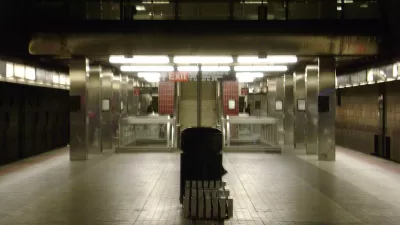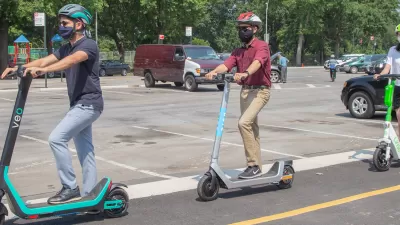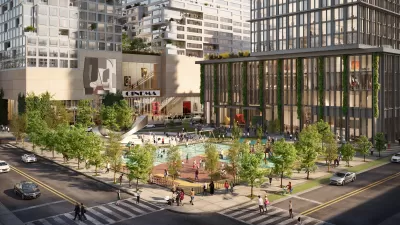Public and private interests have emerged to revitalize the Queens neighborhood, an inter-modal hub ten miles east of Midtown Manhattan.

C.J. Hughes reports that a combination of commercial, government, and non-profit groups are developing the area that many New Yorkers and tourists only know as the JFK-AirTrain route. The area lacks the vibrant commercial and residential atmosphere often found in other NYC neighborhoods with such a plethora of transportation options. "Scarred by poverty, crime and blighted conditions, that transit hub in Jamaica, Queens, has generally been more of a place to contemplate from train platforms than to stroll through on the ground."
Real estate developers plan to capitalize on its proximity to the airport and accessibility to Manhattan. Several major projects are underway, centered around the intersection of Archer Avenue and Sutphin Bouelevard, including a mix of affordable housing units, hotels, and a 100,000-square-foot retail center. The city is also paying attention to the neighborhood: the Jamaica Now Action Plan, a partnership among the city and various public and private stakeholders, has proposed a $153 million budget to attract residents, consumers, and jobs to the area.
Supporters maintain that local residents can rest assured that the investments will not lead to gentrification trends found in other NYC neighborhoods, where low-income residents are often displaced or priced out. Many of the lots being redeveloped are abandoned storefronts and parking lots. According to the Jamaica Now group:
"The strategic actions proposed in the Plan are the product of a nine-month community engagement process and incorporate recommendations from more than 30 meetings and two public conferences with Jamaica residents, businesses, community leaders, and elected officials."
Furthermore, the state has designated 132 acres of the area as brownfields, providing incentives for developers to clean up polluted soil.
FULL STORY: Developers Hope to Change the Face of Transit Hub in Jamaica, Queens

Planetizen Federal Action Tracker
A weekly monitor of how Trump’s orders and actions are impacting planners and planning in America.

Maui's Vacation Rental Debate Turns Ugly
Verbal attacks, misinformation campaigns and fistfights plague a high-stakes debate to convert thousands of vacation rentals into long-term housing.

Restaurant Patios Were a Pandemic Win — Why Were They so Hard to Keep?
Social distancing requirements and changes in travel patterns prompted cities to pilot new uses for street and sidewalk space. Then it got complicated.

In California Battle of Housing vs. Environment, Housing Just Won
A new state law significantly limits the power of CEQA, an environmental review law that served as a powerful tool for blocking new development.

Boulder Eliminates Parking Minimums Citywide
Officials estimate the cost of building a single underground parking space at up to $100,000.

Orange County, Florida Adopts Largest US “Sprawl Repair” Code
The ‘Orange Code’ seeks to rectify decades of sprawl-inducing, car-oriented development.
Urban Design for Planners 1: Software Tools
This six-course series explores essential urban design concepts using open source software and equips planners with the tools they need to participate fully in the urban design process.
Planning for Universal Design
Learn the tools for implementing Universal Design in planning regulations.
Heyer Gruel & Associates PA
JM Goldson LLC
Custer County Colorado
City of Camden Redevelopment Agency
City of Astoria
Transportation Research & Education Center (TREC) at Portland State University
Jefferson Parish Government
Camden Redevelopment Agency
City of Claremont





























